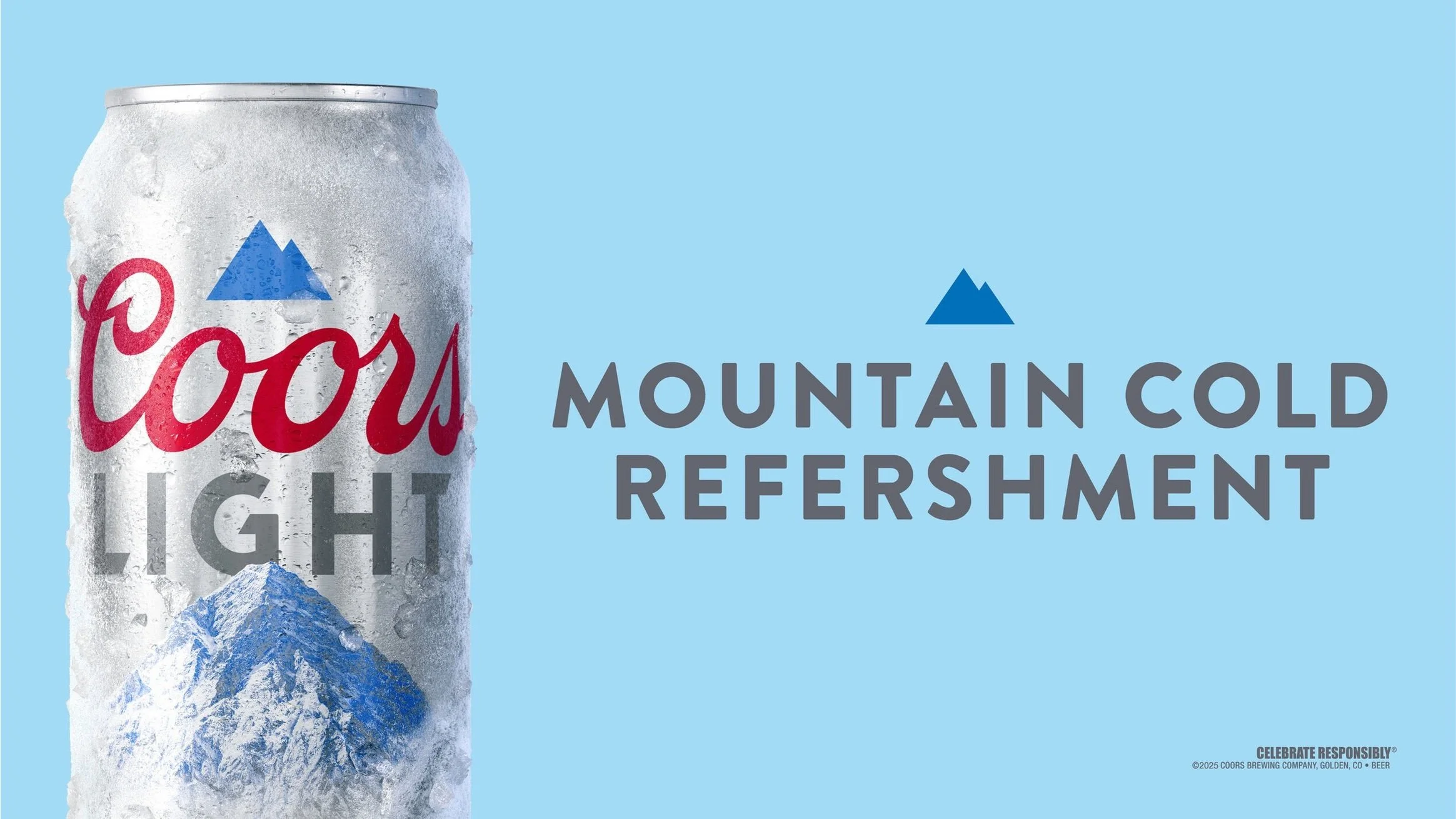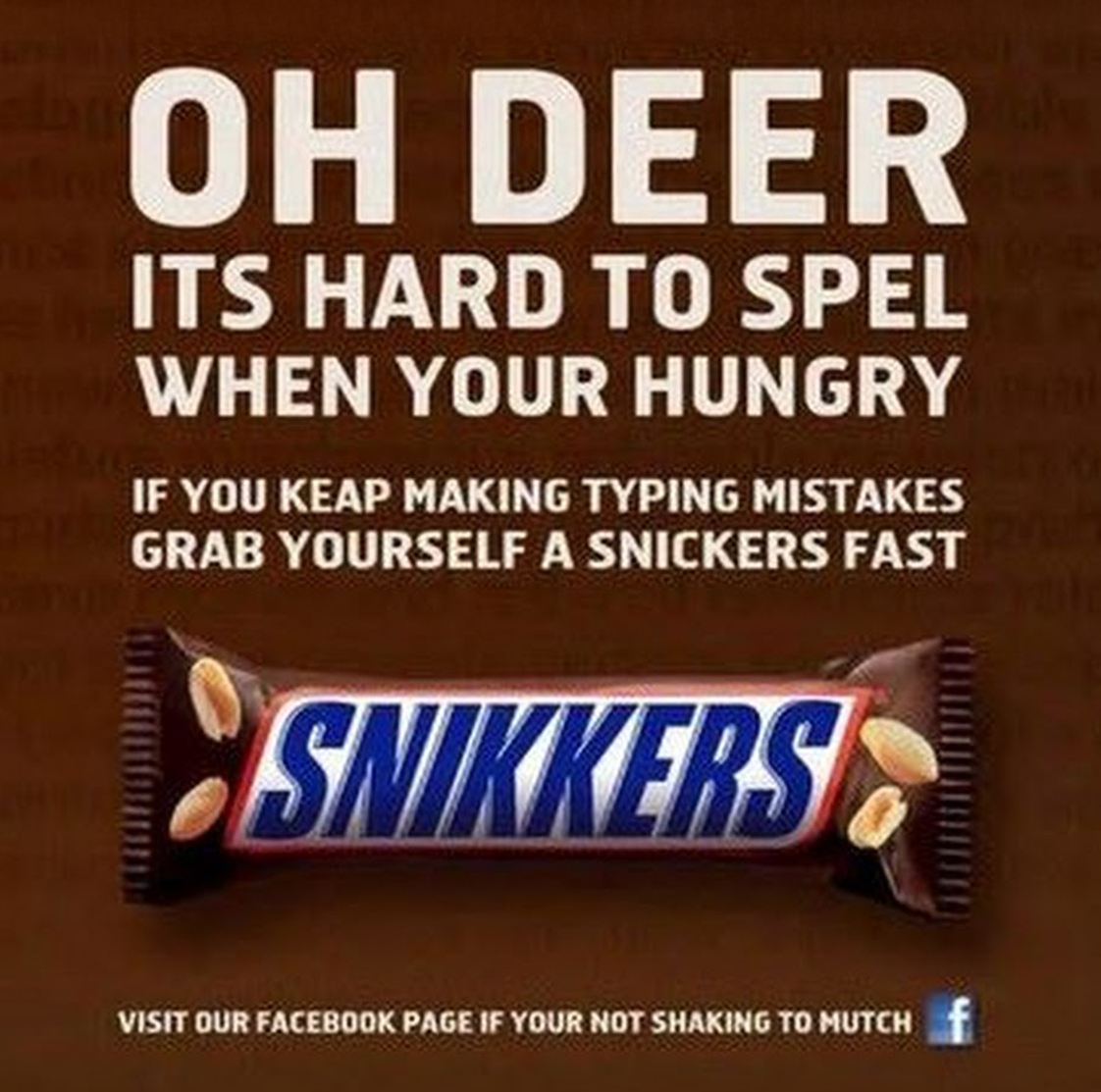Intentional misspellings need to die
Coors Light launched its first 2025 campaign with a typo. This was done intentionally by its agency partner Mischief and while it’s been reviewed as a success, it gives me cause for concern.
Mountain cold refershment
The spelling error in question was: ‘refershment’, which was plastered on ads across the US – including a billboard in Times Square. The following public ‘apology’ was used to launch Coors Light’s new ‘case of the Mondays’ – with the day of the week being used as the ‘excuse’ for the misspelling.
Coors isn’t the first brand to make an intentional spelling error in its ad campaign and I’m sure it won’t be the last. But what does this technique mean for the future of creative campaigns? Are we doomed to rely on spelling errors in lieu of clever creative? Here’s why I think intentional spelling errors need to die.
To note…
There are instances when misspellings are used to great effect. For example, Snickers’ iconic ‘you’re not you when you’re hungry’ campaign was used to highlight how easy misspelling is when you’re hungry. The ads read: Oh deer, it’s hard to spel when your hungry’. This makes perfect sense within the context, it’s grounded in truth/reality and it’s easy to see where the joke is. Ad copy done well!
Brand trust is at an all-time low
PR stunts that ‘trick’ consumers are considered a staple in a marketeer’s toolbox. Usually, they’re cleverly thought-out concepts that highlight a misconception, poke fun at someone or something, or encourage consumers to think differently about their purchasing habits, lives or behaviours.
I don’t feel an ‘spelling error’ does any of these. And while brands are fighting harder than ever to win consumer trust, intentional misspelling risks damaging trust.
It’s not creative
Yes, it gets attention. But it’s not the ‘clever’ creative we all aspire to deliver. It gets attention for being incorrect. And then when the ‘reveal’ happens, it doesn’t shine a light on a taboo subject or bravely speak out against an injustice. It’s just mixed up letters to no avail…
Is all PR good PR?
These ‘misspelt’ campaigns achieve coverage and certainly get people talking. But at what cost? It generates negative brand PR that in my opinion, can’t be recovered upon the reveal.
To misspell is human
Some argue that misspellings humanise brands. After all, we’ve all spelt words incorrectly – it’s only human. But if it’s an intentional misspelling, it just looks inauthentic. It’s almost worse!
It’s AI’s fault!
There’s even an argument to say that brands are misspelling words on purpose to show that AI isn’t writing campaign copy. We’re blaming robots now? Really?
Please can we make misspellings a thing of the past?
Am I a boring grammar and spelling pedant? Possibly. But I’m surely not the only one.
I don’t hate PR stunts. Delivered tactically, they are a headline grabbing tactic that really works. But without a meaningful reveal of the truth behind the stunt, it falls flat.
So, can we all agree to channel our creativity into marketing campaigns and PR stunts that tell compelling stories, drive lasting impact and inspire meaningful change? Rather than fooling consumers with intentional errors that damage trust and give PR a bad name.
If you’re passionate about punctuation, get in touch: pr@pacecomms.co.uk.











